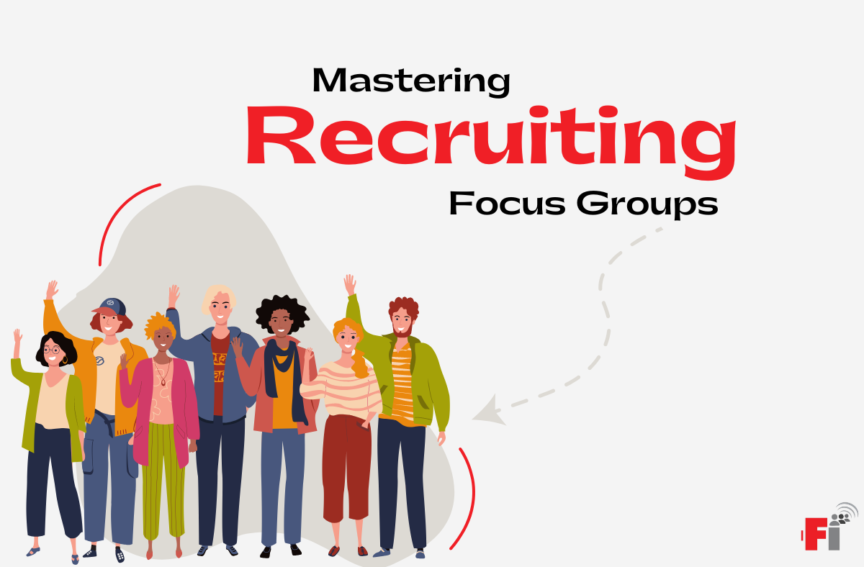Author: Serena Berrey | Editor: Elizabeth Zuponcic
Although the idea of recruiting for a focus group may seem tedious and irrelevant, the quality of your feedback depends heavily on the capacity for your recruits to match your target audience and express themselves to provide helpful insight to your brand. Mastering the art of recruiting focus groups is crucial to a market research study because it allows researchers to identify and engage with the most relevant and representative target audience. In achieving this, we are able to obtain accurate and actionable insights. Understanding the target audience, organizing your market segmentation, and implementing meaningful screening practices will get you where you need to be in the consumer industry.
Without the right participants you won’t gather the right feedback. A successful market study asks the right questions to the right people. It doesn’t matter which research methodology you use, whether it’s focus groups, in-depth interviews, or mobile ethnographies, recruiting is the common denominator. Here are some important key points to keep in mind when recruiting focus groups in particular:
Understand your Target Audience
Before designing the components of a market study, qualitative research consultants first identify the target audience. There are a lot of factors that come into play; is the study objective to gather insights across a broad customer base or is it to get feedback from a targeted segment of the market? The more you define who your target audience is, the better the insights will be. After you’ve settled on who the target audience is to participate in a study, a market research recruiting agency can get to work finding participants who meet the study criteria.
Organize and Understand Market Segmentation
Market segmentation ensures that there is an accurate representation of participants in your study. For example, if the goal of the study is to gather feedback from a broad audience, you’ll want to segment the recruits into categories to ensure there is representation from various groups. You can segment your audience into various categories such as geography, language spoken, cultural identification, ethnicity, age, or profession. You can also categorize not just demographics but psychographics, too!
Produce Meaningful Screening Guides
Screening guides are an essential tool for recruiters to have when selecting study participants. Writing a concise screener helps recruiters weed out unqualified recruits. Recruiters rely on screening guides to ask potential candidates specific questions to see if they qualify for selection. The scope of the market study determines how comprehensive the screening guide is written. Some studies, such as B2B or healthcare studies, require participants meet very specific thresholds or criteria and a screener is your quickest way to identify candidates who qualify.
Overall, mastering recruiting focus groups is important to a market research study because it allows researchers to gain a deeper understanding of their target audience, segment their market, and select representative participants who can provide valuable insights. By doing so, researchers can obtain accurate and actionable data that can inform their marketing strategies and product development efforts.
If you’re looking for a partner who can help you master the art of recruiting focus groups, reach out to us at bids@focusinsie.com today for a free quote and to start the conversation that will put you in touch with your consumer, drive sales, and set you apart from the rest.
Updated on March 23, 2023: We are committed to providing our readers with the latest information and updating our previous articles as needed. This is an update to an article originally written by Tamara Underwood. We hope that you find this updated information informative and useful.


